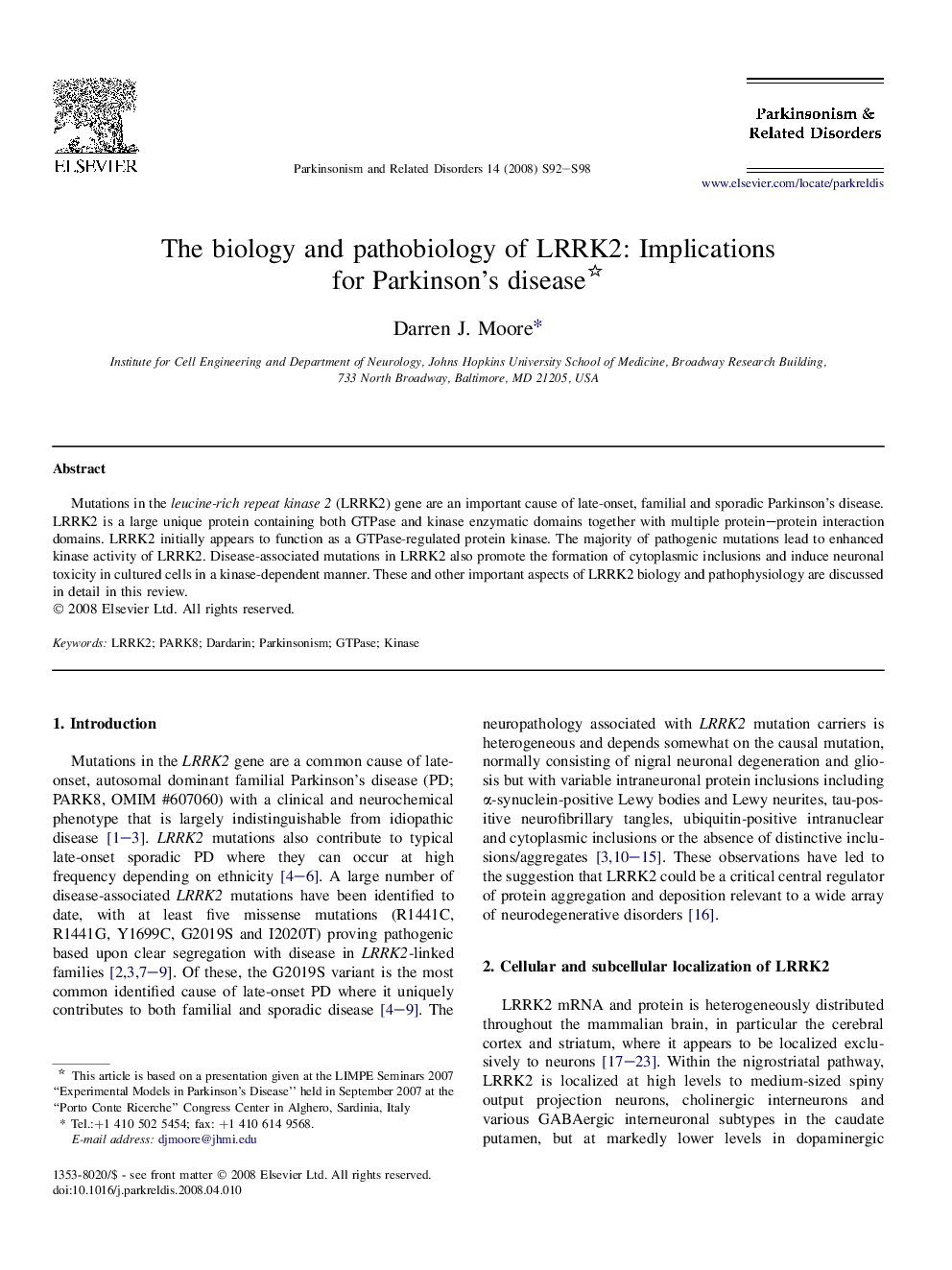| Article ID | Journal | Published Year | Pages | File Type |
|---|---|---|---|---|
| 1921709 | Parkinsonism & Related Disorders | 2008 | 7 Pages |
Abstract
Mutations in the leucine-rich repeat kinase 2 (LRRK2) gene are an important cause of late-onset, familial and sporadic Parkinson's disease. LRRK2 is a large unique protein containing both GTPase and kinase enzymatic domains together with multiple protein–protein interaction domains. LRRK2 initially appears to function as a GTPase-regulated protein kinase. The majority of pathogenic mutations lead to enhanced kinase activity of LRRK2. Disease-associated mutations in LRRK2 also promote the formation of cytoplasmic inclusions and induce neuronal toxicity in cultured cells in a kinase-dependent manner. These and other important aspects of LRRK2 biology and pathophysiology are discussed in detail in this review.
Related Topics
Life Sciences
Biochemistry, Genetics and Molecular Biology
Ageing
Authors
Darren J. Moore,
